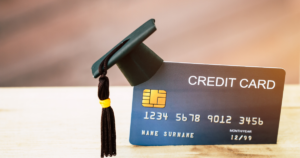So, let’s say you’re doing pretty well managing your money. Your credit score is good, you’ve been able to pay your bills on time and in full each month, and are feeling financially successful. Hooray! Financial stability is something we all want to hold on to. And we want to assist others in achieving financial freedom, too. Co-signing a loan is a prime example of offering your help to a loved one. But how will co-signing a loan impact your finances? Our credit counseling advice is to carefully consider this. Here’s what to know before co-signing a loan!
What to Know Before Co-Signing A Loan
Have you ever been asked to co-sign a loan? Let’s say your child, sibling, grandchild, niece or nephew asks you to co-sign a loan. You want to help, but do you know all of the potential financial implications of debt management? What does co-signing a loan mean and what are your responsibilities as a co-signer? Let’s see.
Why Would Someone Need A Co-Signer?
There are a number of reasons why someone would need a co-signer. One common instance is someone without an established credit history who is trying to build credit but does not qualify for a loan on their own. The co-signer acts as a reassurance to the lender that their loan will be repaid, with you as the back-up. Someone with a poor credit rating may also have trouble qualifying for a loan without a co-signer. Basically, the lender may not want to take a risk on extending money to that borrower who doesn’t have a good track record. So, the solution is to bring along a third party that is proven to be financially responsible.
How Co-Signing a Loan Will Impact You Financially
- It will impact your credit score. Co-signing a loan means that another debt is added to your name and the same rules apply as with any other loan. The new credit is flagged on your credit report and your payment history with this loan will be monitored. Make sure you understand the factors that impact your credit score and how co-signing can impact you.
- You are equally responsible for the debt. Believe it or not, when you co-sign a loan, you are not just offering your good credit score in name only! Once you sign on the dotted line, you will be equally responsible for this loan for the duration of its repayment.
- You are obligated to repay the loan. If for some reason, the primary debtor (your child, niece, nephew, etc.) fails to uphold their end of the bargain, the burden will fall to you. This puts your credit at risk. Make sure that you have the means to take on this extra payment if they are unable to pay.
Is Co-Signing a Loan A Good Idea?
That depends on your financial situation. Are you financially secure and able to take on extra payments if you become saddled with the debt? Will this new loan put you in too much debt? Does the person asking fully understand their responsibility, and do you two have a plan to make sure the debt is repaid on time each month? Do they understand the implications on both their and your credit? These are all important questions to consider! Finally, consider your relationship with this person. Money can cause a lot of tension in a relationship- be sure you can handle it before co-signing.
If you’re struggling to pay off debt, ACCC can help. Schedule a free credit counseling session with us today.






